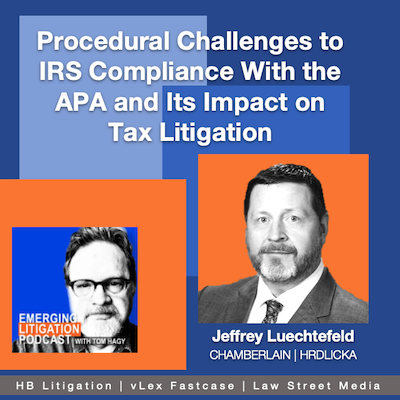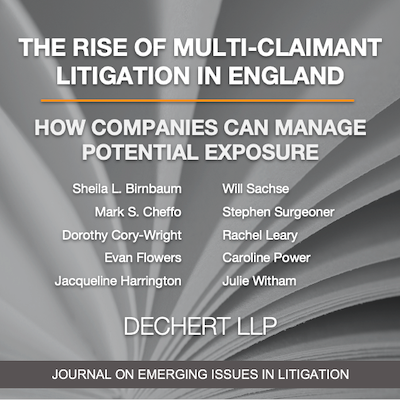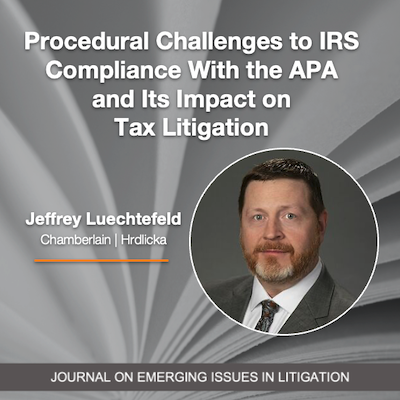The IRS and Rules About Rules
The Administrative Procedures Act outlines the rules of rule making for federal agencies. Lately it has become a focal point in tax litigation, due in large part to the IRS’s record of refusing to comply with the law's notice-and-comment mandate. Listen to learn more about recent trends in tax litigation. Get an article, too.












